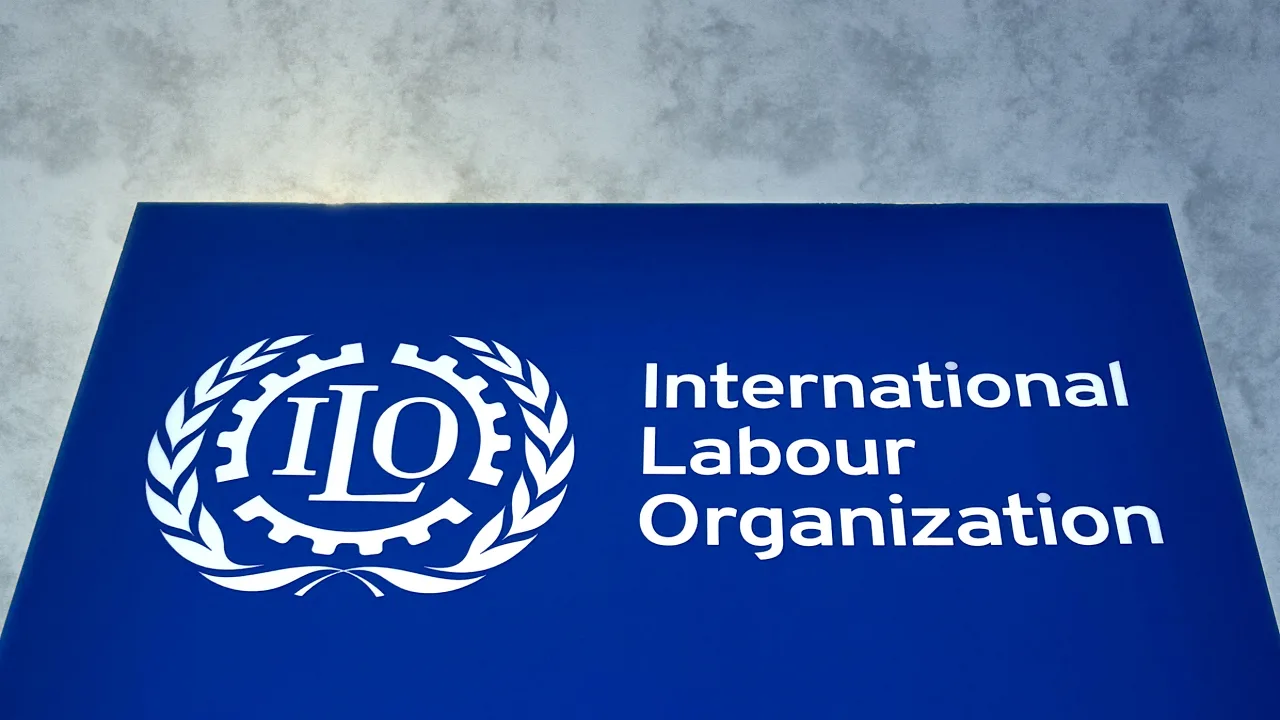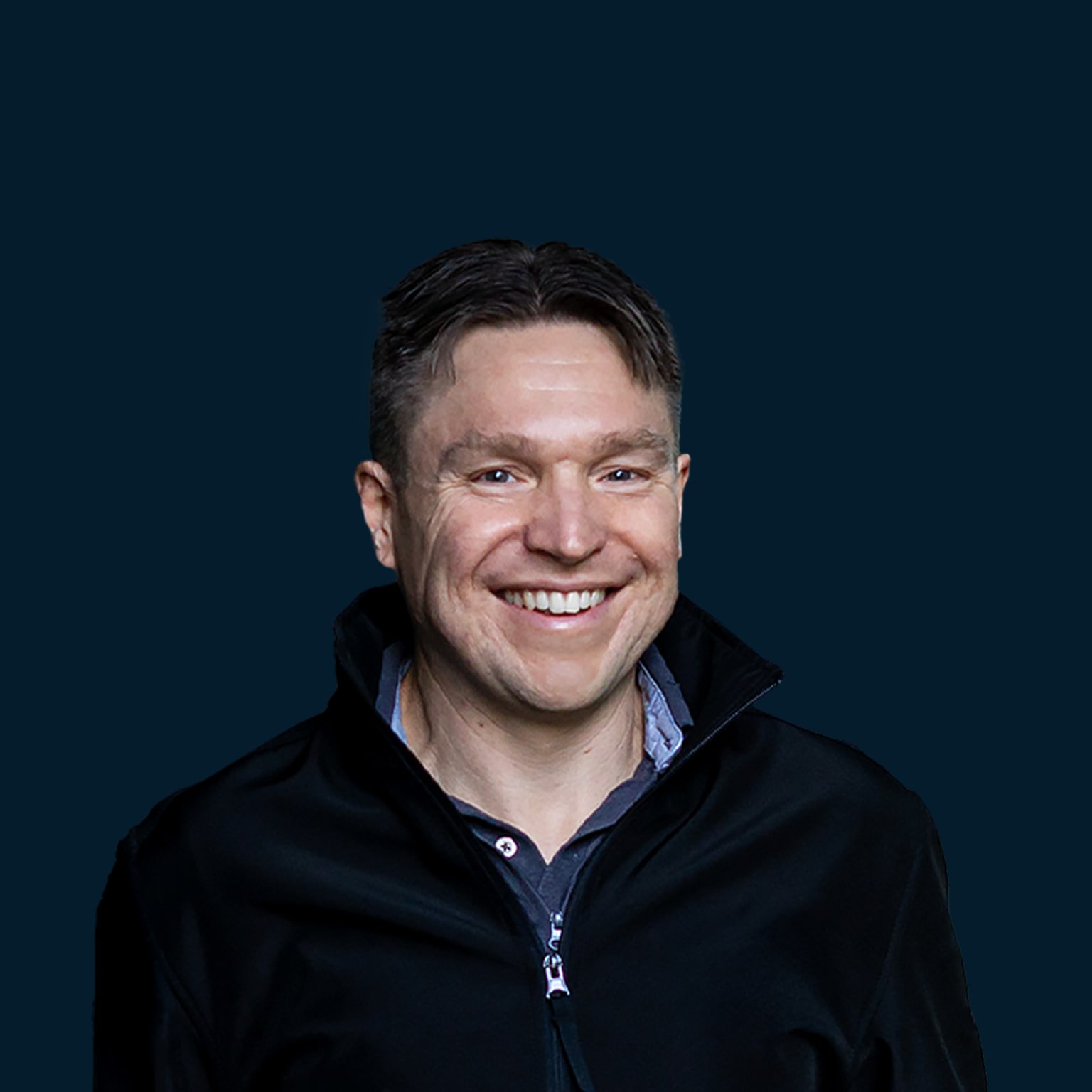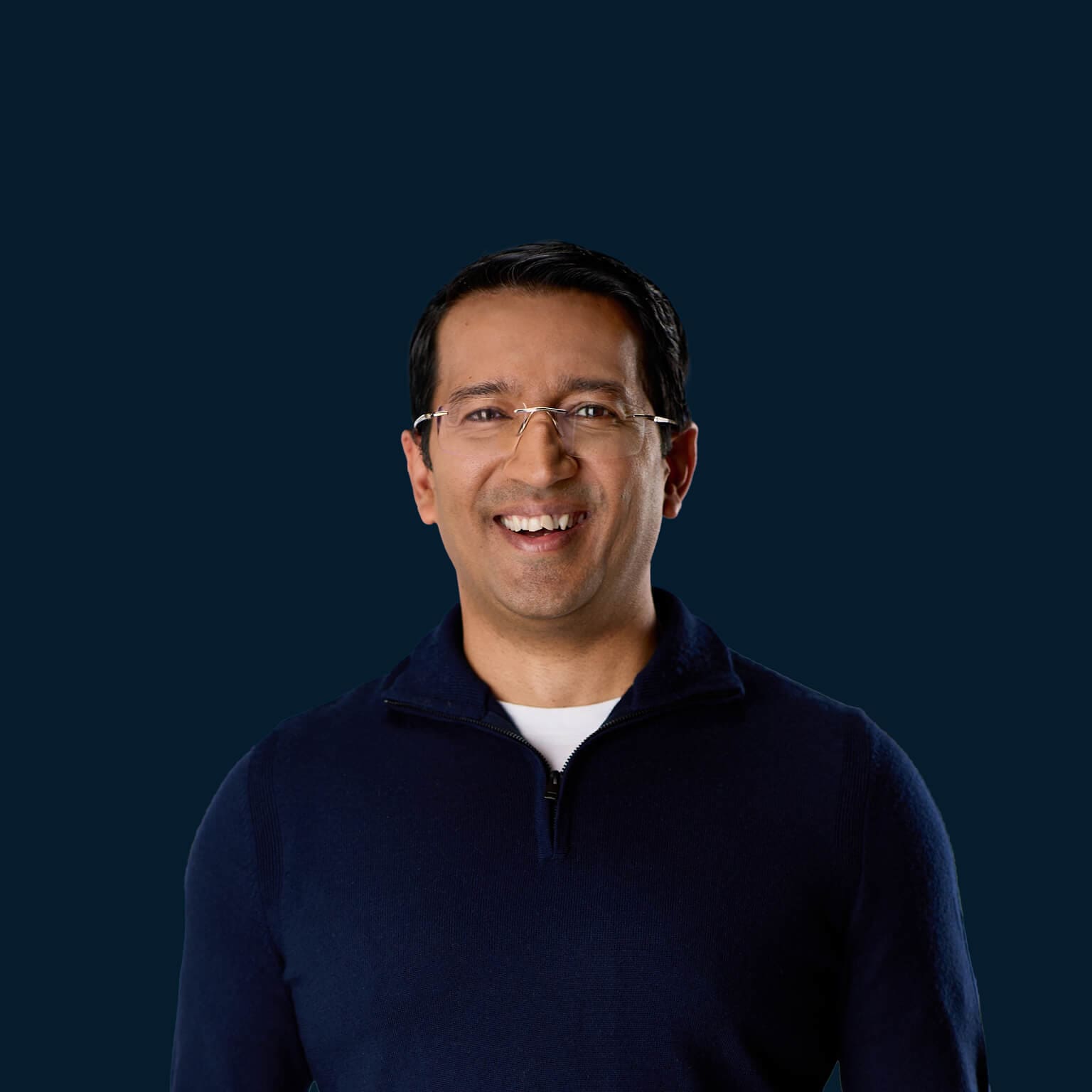Philip Goff — Exploring Consciousness and Non-Ordinary Religion, Galileo’s Error, Panpsychism, Heretical Ideas, and Therapeutic Belief (#805)
Philip Goff on The Tim Ferriss Show podcast! The post Philip Goff — Exploring Consciousness and Non-Ordinary Religion, Galileo’s Error, Panpsychism, Heretical Ideas, and Therapeutic Belief (#805) appeared first on The Blog of Author Tim Ferriss.
“Panpsychism is the view that consciousness goes all the way down to the fundamental building blocks of reality.”
— Philip Goff
Philip Goff (@Philip_Goff) is a professor of philosophy at Durham University. His main research focus is consciousness, but he is interested in many questions about the nature of reality. He is most known for defending panpsychism, the view that consciousness is a fundamental and ubiquitous feature of the physical world. Fifteen years ago, panpsychism was laughed at, if it was thought of at all. Goff has led a movement that has made panpsychism a mainstream position, taught to undergraduates and widely discussed in academic journals.
Goff is the author of Galileo’s Error: Foundations for a New Science of Consciousness and Why? The Purpose of the Universe. He has published 50 academic articles and has written extensively for newspapers and magazines, including Scientific American, The Wall Street Journal, The Guardian, Aeon and the Times Literary Supplement.
Please enjoy!
Listen to the episode on Apple Podcasts, Spotify, Overcast, Podcast Addict, Pocket Casts, Castbox, YouTube Music, Amazon Music, Audible, or on your favorite podcast platform. The transcript of this episode can be found here. Transcripts of all episodes can be found here.
This episode is brought to you by Our Place’s Titanium Always Pan® Pro using nonstick technology that’s coating-free and made without PFAS, otherwise known as “forever chemicals”; AG1 all-in-one nutritional supplement; and Helix Sleep premium mattresses.
This episode is brought to you by AG1! I get asked all the time, “If you could use only one supplement, what would it be?” My answer is usually AG1, my all-in-one nutritional insurance. I recommended it in The 4-Hour Body in 2010 and did not get paid to do so. I do my best with nutrient-dense meals, of course, but AG1 further covers my bases with vitamins, minerals, and whole-food-sourced micronutrients that support gut health and the immune system.
Right now, you’ll get a 1-year supply of Vitamin D free with your first subscription purchase—a vital nutrient for a strong immune system and strong bones. Visit DrinkAG1.com/Tim to claim this special offer today and receive your 1-year supply of Vitamin D (and 5 free AG1 travel packs) with your first subscription purchase! That’s up to a one-year supply of Vitamin D as added value when you try their delicious and comprehensive daily, foundational nutrition supplement that supports whole-body health.
This episode is brought to you by Our Place’s Titanium Always Pan® Pro! Many nonstick pans can release harmful “forever chemicals”—PFAS—into your food, your home, and, ultimately, your body. Teflon is a prime example—it is *the* forever chemical that most companies are still using. Exposure to PFAS has been linked to major health issues like gut microbiome disruption, testosterone dysregulation, and more, which have been correlated to chronic disease in the long term. This is why I use the Titanium Always Pan Pro from today’s sponsor, Our Place. It’s the first nonstick pan with zero coating. This means zero “forever chemicals” and a durability that will last a lifetime. That’s right—no degradation over time like traditional nonstick pans.
Now, Our Place has expanded their lineup and launched the Titanium Pro Cookware Set—a completely toxin-free, high-performance set designed to last a lifetime. It’s built on the success of the Titanium Always Pan Pro. Now, you can cook everything with the same health-first, long-lasting design. Listeners of The Tim Ferriss Show can now get 10% off the Titanium Pro Cookware Set. Just visit FromOurPlace.com/Tim and use code TIM at checkout. With a 100-day risk-free trial, free shipping, and free returns, there’s zero risk in test-driving a great upgrade to your kitchen.
This episode is brought to you by Helix Sleep! Helix was selected as the best overall mattress of 2024 by Forbes, Fortune, and Wired magazines and many others. With Helix, there’s a specific mattress to meet each and every body’s unique comfort needs. Just take their quiz—only two minutes to complete—that matches your body type and sleep preferences to the perfect mattress for you. They have a 10-year warranty, and you get to try it out for a hundred nights, risk-free. They’ll even pick it up from you if you don’t love it. And now, Helix is offering 20% off all mattress orders at HelixSleep.com/Tim.
Want to hear how writer and producer Michael Schur brought philosophy to prime time with his critically acclaimed NBC comedy The Good Place? Listen to our conversation here, in which we discuss how performing live comedy is like Roman gladiator combat, the F = ma of sitcom writing, rare-book collecting, what qualifies the legitimacy of a philosopher, two philosophers Michael would choose to have on speed dial for his own personal instruction, worthwhile failures, why we should all strive to better understand ethics, and much more.
What was your favorite quote or lesson from this episode? Please let me know in the comments.
SELECTED LINKS FROM THE EPISODE
- Connect with Philip Goff:
Website | Mind Chat (Podcast) | Twitter | Bluesky
The transcript of this episode can be found here. Transcripts of all episodes can be found here.
Books, Publications, and Written Works
- Galileo’s Error: Foundations for a New Science of Consciousness by Philip Goff
- Why? The Purpose of the Universe by Philip Goff
- Does Consciousness Pervade the Universe? Philosopher Philip Goff Answers Questions About “Panpsychism” | Scientific American
- Lights On: How Understanding Consciousness Helps Us Understand the Universe by Annaka Harris
- Mind Beyond Brain: Buddhism, Science, and the Paranormal by David Presti
- A Brief History of Time by Stephen Hawking
- The Analysis of Matter by Bertrand Russell
- The Will to Believe, Human Immortality, and Other Essays in Popular Philosophy by William James
- The Varieties of Religious Experience by William James
- The Varieties of Spiritual Experience: 21st Century Research and Perspectives by David Yaden
- Why I Am Not a Christian by Bertrand Russell
- Reality+: Virtual Worlds and the Problems of Philosophy by David J. Chalmers
- The Immortality Key: The Secret History of the Religion with No Name by Brian C. Muraresku
- What Would Teleological Causation Be? by John Hawthorne and Daniel Nolan | Metaphysical Essays
- The Year of Living Biblically: One Man’s Humble Quest to Follow the Bible as Literally as Possible by A.J. Jacobs
- Why Strict Churches Are Strong by Laurence R. Iannaccone | AJS
- The Power of the Mustard Seed: Why Strict Churches Are Strong by Judith Shulevitz | Slate
- The Case for God by Karen Armstrong
- All’s Well That Ends Well by William Shakespeare
- The Holy Bible
- Dominion: How the Christian Revolution Remade the World by Tom Holland
- Mind and Cosmos: Why the Materialist Neo-Darwinian Conception of Nature is Almost Certainly False by Thomas Nagel
- Dune by Frank Herbert
- Gold by Rumi
- The Angels Knocking on the Tavern Door: Thirty Poems by Hafez
- I Now Think a Heretical Form of Christianity Might Be True by Philip Goff | Aeon
- What Is It Like to Be a Bat? by Thomas Nagel | The Philosophical Review
- Review of ‘Why? The Purpose of the Universe’ by Brian Clegg | Popular Science
People
- Gareth Cook: Pulitzer Prize-winning author who interviewed Philip for Scientific American.
- Annaka Harris: Author, friend of Philip, sympathetic to Panpsychism.
- Roger Penrose: Nobel Prize-winning physicist, proponent of quantum consciousness theories.
- Stuart Hameroff: Scientist who collaborated with Penrose on consciousness theories.
- Kurt Gödel: Logician known for incompleteness theorems.
- Christof Koch: Neuroscientist involved in consciousness research, made a bet with Chalmers, associated with IIT.
- David Chalmers: Philosopher known for work on consciousness, made a bet with Koch, proponent of Panpsychism, author of Reality+.
- Giulio Tononi: Neuroscientist, key figure in Integrated Information Theory — IIT.
- Max Planck: Physicist, father of quantum theory, quoted on consciousness being fundamental.
- Galileo Galilei: Scientist pivotal in the scientific revolution, discussed for separating consciousness from physical science.
- David Presti: Neuroscientist at UC Berkeley, editor of Mind Beyond Brain.
- Steve Jurvetson: Venture capitalist discussed regarding quantum computing (Tim Ferriss Show #317).
- Bertrand Russell: Philosopher and logician, key influence on Philip, proponent of ideas foundational to modern Panpsychism, author of Why I Am Not a Christian.
- Charles Darwin: Biologist, used as a comparison for Russell’s impact.
- Arthur Eddington: Scientist who confirmed Einstein’s theory, worked on consciousness/Panpsychism with Russell.
- Albert Einstein: Physicist, creator of the theory of general relativity.
- Isaac Newton: Physicist whose theory of gravity was updated by Einstein.
- Stephen Hawking: Physicist, author of A Brief History of Time.
- William James: Philosopher and psychologist, major influence on Philip, known for Varieties of Religious Experience and The Will to Believe.
- Karen Armstrong: Historian of religion, author of The Case for God.
- Meister Eckhart: Christian mystic.
- William Lane Craig: Christian philosopher and apologist debated by Philip.
- Dale Allison: Biblical scholar known for work on the resurrection.
- Jesus: Central figure of Christianity, also referred to as Yeshua.
- Tom Holland: Historian, author of Dominion.
- William Shakespeare: Playwright.
- Bertram: Character in Shakespeare’s All’s Well That Ends Well.
- Helena: Character in Shakespeare’s All’s Well That Ends Well.
- Origen: Early Christian theologian known for allegorical interpretation.
- Thomas Aquinas: Philosopher and theologian, mentioned as initially radical.
- St. Francis of Assisi: Christian saint associated with mysticism and nature.
- Thomas Merton: Trappist monk and mystic writer.
- Brian Muraresku: Author of The Immortality Key.
- Bart Ehrman: Atheist Bible scholar mentioned regarding early Christian experiences.
- St. Peter: Apostle of Jesus mentioned regarding resurrection experiences.
- Mary Magdalene: Follower of Jesus mentioned regarding resurrection experiences.
- Thomas Nagel: Philosopher, author of Mind and Cosmos.
- Richard Dawkins: Biologist and prominent atheist.
- Nick Bostrom: Philosopher known for the simulation hypothesis.
- John Hawthorne: Philosopher mentioned for work on teleological laws.
- Daniel Nolan: Philosopher mentioned for work on teleological laws.
- Blaise Pascal: Mathematician and philosopher known for Pascal’s Wager.
- Thomas Bayes: Mathematician, originator of Bayes’ Theorem.
- David Hume: Philosopher known for skepticism, challenged by Bayes regarding miracles.
- John Maynard Keynes: Economist, quoted on changing one’s mind.
- Constantine: Roman Emperor associated with Christianity’s rise.
- Socrates: Ancient Greek philosopher, used as a comparison for Bohr’s charisma.
- Niels Bohr: Physicist, pioneer of quantum mechanics.
- Knut Nordby: Late neuroscientist, expert color scientist who was colorblind.
- Eugene Wigner: Nobel Prize-winning physicist who explored consciousness in quantum mechanics.
- W.K. Clifford: Mathematician and philosopher mentioned by William James regarding belief and evidence.
- Joanna Leidenhag: Panpsychist theologian.
- Plato: Ancient Greek philosopher.
- Joe Rogan: Podcaster who interviewed Philip.
- Luke Roelofs: Philosopher, panpsychist who believes everything is conscious.
- Angela Mendonovici: Philosopher mentioned as a secular panpsychist.
- Hedda Hassel Mørch: Philosopher mentioned as seeing consonance between Panpsychism and spirituality.
- Itai Shani: Philosopher mentioned as seeing consonance between Panpsychism and spirituality.
- A.J. Jacobs: Author and journalist known for his immersive journalism and experiments in living.
- Hafez: Persian Sufi poet.
- Jalal al-Din Rumi: Persian Sufi poet.
- Haleh Liza Gafori: Performance artist, translator, vocalist, poet, and musician.
- David Yaden: Scientist, author of The Varieties of Spiritual Experiences.
- Stanislas Dehaene: Neuroscientist associated with Global Neuronal Workspace Theory.
- Erwin Schrödinger: Physicist known for the Schrödinger equation and thought experiment.
- Gottlieb Frege: Logician and philosopher who worked with Russell.
- Kelvin McQueen: Philosopher who explored consciousness’s role in quantum mechanics with Chalmers.
Concepts (Philosophy/Religion/Spirituality)
- Consciousness: Subjective experience, “what it’s like to be.” Core topic.
- Panpsychism: Philosophical view that consciousness is fundamental and ubiquitous.
- Mystical Experiences: Experiences of unity, transcendence, deep insight.
- Animism: Belief system mentioned as distinct from Panpsychism.
- Cosmopsychism: View that the universe itself is conscious.
- Emergent Property: Idea that complexity arises from simplicity, contrasted with fundamental consciousness.
- Materialism: Philosophical view that matter is fundamental.
- Fundamental Reality: The basic level of existence.
- Observation (in Quantum Mechanics): Act of measurement, potentially linked to consciousness.
- Qualia: The qualitative character of experience.
- Explanatory Gap: Difficulty explaining subjective experience from physical processes.
- Galileo’s Error (Concept): Philip’s idea about the exclusion of quality from science.
- Global Neuronal Workspace Theory (GNWT): A functional architecture that relates consciousness to cognitive abilities such as perception, attention, memory, and evaluation.
- Soul: Immaterial essence, traditionally seat of consciousness.
- Dualism: Philosophical view of mind and matter as distinct.
- Occam’s Razor: Principle favoring simpler explanations.
- Miracles: Events attributed to supernatural intervention.
- Platonic Heaven: Metaphor for Plato’s realm of Forms/Numbers.
- Combination Problem: Challenge for Panpsychism regarding combining simple consciousnesses.
- Bayes’ Theorem: A mathematical rule for inverting conditional probabilities, allowing one to find the probability of a cause given its effect.
- Pascal’s Wager: Argument for believing in God based on outcomes.
- The Will to Believe / The Right to Believe: James’s concept about belief beyond evidence.
- Double-Standard (Epistemological): James’ argument about trusting different types of experience.
- Cosmic Purpose / Goal-Directedness: Idea of inherent direction in the universe.
- Teleological Laws: Hypothetical laws of nature incorporating purpose.
- Telos: Greek word for ‘purpose’ or ‘goal.’
- The Simulation Hypothesis: Are we living in a computer simulation?
- Stoicism: An ancient philosophy that teaches the development of self-control and fortitude as a means of overcoming destructive emotions.
- Sufism: Islamic mysticism which, through belief and practice, helps Muslims attain nearness to Allah by way of direct personal experience of God.
- Epicureanism: A philosophical system founded by Epicurus, centers on the pursuit of pleasure and the absence of pain as the path to happiness
- Eucharist: Christian sacrament.
- Pistis: Greek word for ‘belief’/’trust.’
- Belieben: German word related to ‘love’/’believe.’
- Salvation: Theological concept of deliverance.
- The Good Samaritan: A biblical parable from Luke 10:29–37 that demonstrates the virtue of caring for even the most despised among us.
- Freeloader Problem: Concept regarding group contribution.
- Literal vs. Moral vs. Allegorical Meaning (Origen): Levels of scriptural interpretation.
- First Shall Be Last, Last Shall Be First: Biblical saying from Matthew 20:16.
- The More (William James): Term for transcendent reality.
- Burning Bush: Biblical story from Exodus 3.
- Lisan al Gaib: From Arabic — in Dune, this is the Fremen term for their offworld prophet or messiah.
Concepts (Science/Math/Psychology)
- Gödel’s Incompleteness Theorems: Mathematical theorems showing limits of provability in formal systems, with deep implications for mathematics and logic.
- Predicate Logic: A branch of formal logic incorporating quantifiers, variables, and predicates to express relationships and make inferences about objects.
- Microtubules: Cellular structures in neurons’ cytoskeleton proposed by some theorists to play a role in consciousness through quantum processes.
- Neural Correlates of Consciousness (NCC): The minimal neural systems sufficient for specific conscious experiences, forming a key research program in neuroscience.
- Integrated Information Theory (IIT): Scientific theory proposing that consciousness emerges from complex integrated information systems in the brain.
- Phi: Measure of integrated information used in IIT to quantify the amount of consciousness in a system.
- Schrödinger Equation: Fundamental equation in quantum mechanics describing how quantum states evolve over time.
- Schrödinger’s Cat: Schrödinger’s famous thought experiment in quantum mechanics that is simultaneously kind and unkind to a feline frenemy.
- Superposition: Quantum mechanical principle where particles exist in multiple states simultaneously until measured.
- Born Rule: Fundamental rule in quantum mechanics that determines probability distributions of measurement outcomes.
- General Relativity: The geometric theory of gravitation published by Albert Einstein in 1915.
- Cosmological Constant: The simplest possible explanation for dark energy, used in the standard model of cosmology known as the ?CDM model.
- MAOIs (Monoamine Oxidase Inhibitors): Class of chemicals that inhibit monoamine oxidase enzymes, used in antidepressants and found in ayahuasca.
Movies
Institutions and Organizations
- Durham University
- Scientific American
- Wadham College, Oxford
- Johns Hopkins University
- Department of Molecular and Cell Biology at UC Berkeley
- Olive Garden
Events
Relevant Resources
- Chilean Sea Bass: How Patagonian Toothfish Was Saved | MSC
- Annaka Harris: Is Consciousness Everywhere? | Mind Chat
- The Mystical Experience Questionnaire (30 Questions) | Trippingly
- Max Planck: “I Regard Consciousness as Fundamental…” | Big Think
- AI-Powered Answer Engine | Perplexity
- Scientists Unveil New Results in Hunt to Pinpoint the Seat of Consciousness | Singularity Hub
- The Radical New Experiments That Hint at Plant Consciousness | New Scientist
- The Great Schism That Divided East and West | EWTN
- The Reformation | History
- What Can Psychedelics Tell Us About Mind and Reality? | Mind Chat
SHOW NOTES
- [00:00:00] Start.
- [00:06:24] What is panpsychism?
- [00:11:19] Common misunderstandings about panpsychism.
- [00:16:08] Roger Penrose and quantum consciousness.
- [00:17:26] Gödel’s incompleteness theorem.
- [00:19:22] The challenges of scientific consensus on consciousness.
- [00:21:35] Integrated Information Theory (IIT).
- [00:27:17] What early quantum pioneers like Max Planck and Niels Bohr thought about consciousness.
- [00:33:15] Defining consciousness and qualia.
- [00:35:41] Galileo’s Error: How science removed consciousness from study.
- [00:41:03] Materialist vs. panpsychist.
- [00:43:30] The neuroanatomical seat of consciousness debate.
- [00:45:41] Scientific challenges around the public observation of consciousness.
- [00:50:35] Exploring potential payoffs and ethical considerations of figuring out consciousness.
- [00:57:01] How virtual reality reminded Philip to appreciate ordinary reality.
- [01:00:31] Bertrand Russell and William James as philosophical heroes.
- [01:02:05] Science seems mum on the matter of matter.
- [01:06:53] William James and mystical experiences.
- [01:09:20] Philip’s journey as a “heretical Christian.”
- [01:19:23] Why Philip left Christianity at age 14.
- [01:20:20] Rediscovering mystical traditions within Christianity.
- [01:31:41] Karen Armstrong on the modern corruption of religious belief.
- [01:33:56] Is true belief a prerequisite for building a community through religion and enjoying its therapeutic benefits?
- [01:48:40] Psychedelics and numinous experiences.
- [01:51:36] Sufism and mystical poetry.
- [01:56:10] Renaming traditional religious terms for broader accessibility.
- [02:01:09] The potential resurgence of religion and new spiritual movements.
- [02:05:42] Philip’s billboard.
- [02:08:36] Parting thoughts.
MORE PHILIP GOFF QUOTES FROM THE INTERVIEW
“Panpsychism is the view that consciousness goes all the way down to the fundamental building blocks of reality.”
— Philip Goff
“Don’t start from ‘What do I want?’ Start from ‘How can I contribute?’ I think happiness flows from that.”
— Philip Goff
“The way the word ‘consciousness’ is standardly used, I think in both science and philosophy, it just means subjective experience. Your consciousness is just what it’s like to be you.”
— Philip Goff
“I’m not here saying, ‘Oh, this is the one true faith you’ve got to believe.’ … I’m interested in different experiments in living, and I think there’s a way of engaging religion that perhaps not everyone is fully aware of.”
— Philip Goff
“Physical science doesn’t really tell us what matter is … ultimately, at base, physics just gives us mathematical structure. And so in a sense, physics doesn’t care what matter is, it doesn’t care what physical reality is, it just cares what its mathematical structure is.”
— Philip Goff
“We don’t know if we can get consciousness out of physics, but we know we can get physics out of consciousness.”
— Philip Goff
[On the integrated information theory:] “The proposal is that at the exact moment when a system has more integrated information in the whole than in the parts, that’s when the lights come on. That’s when you get consciousness.”
— Philip Goff
The post Philip Goff — Exploring Consciousness and Non-Ordinary Religion, Galileo’s Error, Panpsychism, Heretical Ideas, and Therapeutic Belief (#805) appeared first on The Blog of Author Tim Ferriss.



























































































































































